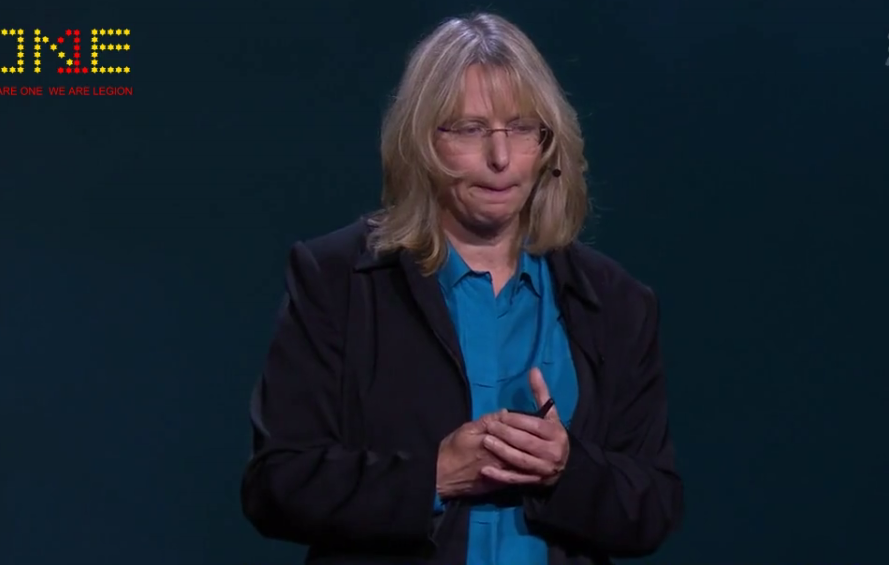First, we all need to get out in the forest.
首先,我們都得走出家門,走進森林。
We need to reestablish local involvement in our own forests.
我們需要重新使當地的居民融入到我們森林中去。
You see, most of our forests now are managed using a one-size-fits-all approach,
其實,現在我們的大部分林業實踐采用的都是一體通用的方法,
but good forest stewardship requires knowledge of local conditions.
但是優秀的森林管理員是需要具備關于當地環境情況的知識的。
Second, we need to save our old-growth forests.
第二,我們需要保護好我們的古老森林。
These are the repositories of genes and mother trees and mycorrhizal networks.
保護好它們就是保護好了森林的基因庫、保護好了母樹和菌根網絡。
So this means less cutting. I don't mean no cutting, but less cutting.
這就意味著我們需要減少砍伐。我不是說不伐樹了,而是少伐。

And third, when we do cut, we need to save the legacies,
第三,當我們伐木時,我們需要保護森林的“遺產”——
the mother trees and networks, and the wood, the genes,
母樹和菌根網絡,還有樹干和基因,
so they can pass their wisdom onto the next generation of trees
這樣它們就能把它們的智慧傳給下一代的樹木,
so they can withstand the future stresses coming down the road.
這樣整個森林就能禁得起未來將會面對的重重困難了。
We need to be conservationists.
我們都需要做自然環境保護者。
And finally, fourthly and finally,
最后,第四點,也是最后一點,
we need to regenerate our forests with a diversity of species
我們需要通過人工種植和自然再生的方式,
and genotypes and structures by planting and allowing natural regeneration.
增加森林的物種多樣性、基因型多樣性和結構多樣性。
We have to give Mother Nature the tools she needs to use her intelligence to self-heal.
我們需要給大自然母親她需要的工具,好讓她用自己的智慧來進行自愈。
And we need to remember that forests aren't just a bunch of trees
我們需要明白森林不僅僅是一堆樹在互相競爭,
competing with each other, they're supercooperators. So back to Jigs.
它們是無比優秀的合作者。讓我們的話題回到吉格斯。
Jigs's fall into the outhouse showed me this other world, and it changed my view of forests.
那次吉格斯掉進了坑里的經歷讓我見識到了另一個世界,而這件事完全改變了我對森林的看法。
I hope today to have changed how you think about forests. Thank you.
我希望今天我也能改變你們的一些關于森林的印象。謝謝。











